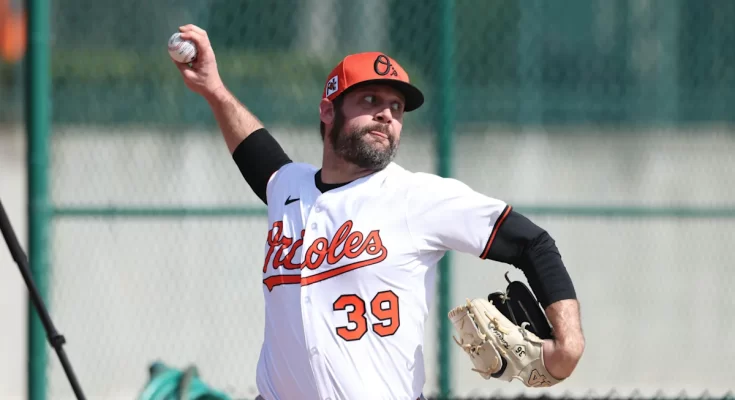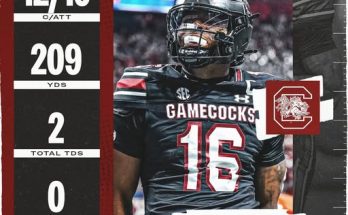Orioles Bolster Bullpen with High-Stakes Signing of Former Brewers Fireballer
The Baltimore Orioles made their first significant bullpen addition of the offseason Thursday, signing former Milwaukee Brewers right-hander Jake Cousins to a one-year, $1.25 million contract with additional performance incentives that could push the deal to $2.1 million. The move represents a calculated gamble by general manager Mike Elias on a pitcher whose electric stuff has been undermined by inconsistency and injury, but whose underlying metrics suggest untapped potential that could pay massive dividends for the American League contenders. Cousins, 29, arrives in Baltimore after being designated for assignment by Milwaukee last week, giving the Orioles an intriguing power arm with postseason experience to slot into their late-inning mix.
What makes this signing particularly fascinating is how perfectly Cousins’ profile aligns with Baltimore’s pitching development philosophy. The 6’4″, 215-pound reliever possesses one of baseball’s most devastating sliders—a pitch that generated a 48.7% whiff rate in 2023 despite his overall struggles—and a sinking fastball that averages 95.7 mph with elite spin rates. These tools helped him post a 2.70 ERA across 36 appearances for the 2021 Brewers team that won the NL Central, but Tommy John surgery in 2022 and subsequent command issues (6.1 BB/9 last season) derailed his progress in Milwaukee. The Orioles clearly believe their pitching infrastructure can help Cousins rediscover his pre-surgery form, with multiple sources indicating they plan to tweak his pitch sequencing to better leverage his strengths.
Cousins’ journey to Baltimore reads like a case study in perseverance. An 18th-round pick out of Penn in 2017, he was released by the Nationals in 2019 before reinventing himself in independent ball with the Chicago Dogs. The Brewers signed him off a showcase video during the pandemic-shortened 2020 season, and by the following summer, he was carving up major league hitters with a slider that dropped an average of 42 inches—more vertical break than Jacob deGrom’s vaunted offering. That version of Cousins would represent a legitimate high-leverage option for an Orioles bullpen that overachieved last season but lacked proven depth behind All-Star closer Félix Bautista and setup man Yennier Cano.
The financial structure of the deal reveals Baltimore’s savvy approach. The $1.25 million base salary is barely above the league minimum, but Cousins can earn $250,000 bonuses for reaching 40, 50, and 60 appearances, plus additional incentives based on games finished—a clever mechanism that rewards both durability and late-inning effectiveness. For a reliever who made just $730,000 last season, the opportunity to nearly triple his earnings while joining a World Series contender proved irresistible. “The Orioles presented the clearest path to winning while also giving me the resources to take my game to another level,” Cousins said during a brief Zoom press conference, referencing Baltimore’s state-of-the-art pitching lab and biomechanics team.
From a tactical standpoint, Cousins fills multiple needs for manager Brandon Hyde. His extreme groundball tendencies (58.3% career rate) play perfectly at Camden Yards, where home runs to left field can be especially damaging. He’s also historically dominated right-handed hitters (.189 career batting average against), giving Hyde a weapon to deploy against AL East sluggers like Aaron Judge, Rafael Devers, and Wander Franco. Perhaps most importantly, Cousins has minor league options remaining, providing roster flexibility that Elias values immensely when navigating a 162-game season.
The signing also continues Baltimore’s recent trend of targeting pitchers with elite spin characteristics who’ve underperformed their expected metrics. Cousins ranked in the 94th percentile in fastball spin and 89th in slider spin last season despite his 5.34 ERA, with his .372 BABIP (batting average on balls in play) suggesting he was victimized by poor defensive luck. The Orioles’ analytics team has consistently identified such pitchers—see Cano’s transformation from minor league journeyman to All-Star—and their willingness to invest in Cousins indicates similar confidence in their ability to unlock his potential.
For the Brewers, losing Cousins represents another bullpen departure in an offseason that’s seen them trade All-Star closer Devin Williams to the Mets. Milwaukee’s decision to designate him for assignment rather than retain him through arbitration speaks to their concerns about his declining command, but multiple scouts contacted for this story believe the move had more to do with roster construction than talent evaluation. “Jake still has wipeout stuff,” said an NL Central scout who watched him extensively last season. “The Brewers are in cost-cutting mode, but if the Orioles can get him to throw even a few more strikes, they’ve got a steal.”
Cousins’ arrival creates fascinating competition in Sarasota this spring. While Bautista remains sidelined recovering from Tommy John surgery, Baltimore now has six relievers with closing experience: Cano, Cousins, Danny Coulombe, Cionel Pérez, Dillon Tate, and recent trade acquisition Bryan Baker. This depth allows Hyde to avoid overworking any single arm—a lesson learned from last year’s bullpen fatigue down the stretch—while keeping everyone fresh for October. It also gives the Orioles insurance should Bautista’s recovery timeline extend beyond the expected late-July return date.
Beyond the on-field implications, this signing signals Baltimore’s continued evolution into a destination for players seeking both winning environments and cutting-edge development. Just five years removed from a 110-loss season, the Orioles can now attract veterans willing to take short-term deals because of their track record of maximizing pitcher performance. Cousins reportedly turned down more guaranteed money from two other clubs because he believed Baltimore gave him the best chance to rebuild his value ahead of free agency after the 2024 season.
As Cousins prepares for his Orioles debut, the parallels to Cano’s breakout 2023 campaign are impossible to ignore. Both are hard-throwing righties with dominant secondary pitches who struggled with command before arriving in Baltimore. Both joined the organization on low-risk deals with something to prove. And both now have the opportunity to play key roles for a team with legitimate World Series aspirations. If pitching coach Chris Holt can work similar magic with Cousins, the Orioles may have just added their latest bullpen gem at a fraction of the cost it would have taken to land a comparable arm on the open market.
For a franchise that’s built its resurgence on smart, value-driven moves, the Cousins signing epitomizes the Orioles Way 2.0—where data meets development, and where every acquisition carries not just the hope of improvement, but the expectation of it. As the AL East arms race heats up this winter, Baltimore’s latest addition proves they’re not just keeping pace, but thinking several moves ahead. And if that nasty slider starts finding the zone with more consistency, Jake Cousins might soon become the latest reclamation success story in a season full of them.



